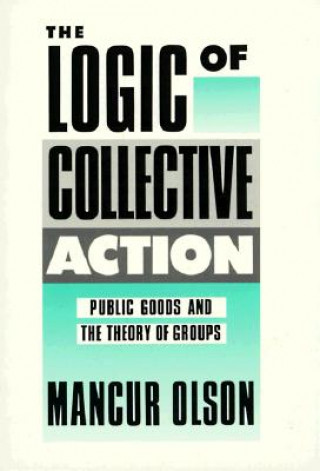
Kod: 01390425
Logic of Collective Action
Autor Mancur Olson
This book develops an original theory of group and organizational behavior that cuts across disciplinary lines and illustrates the theory with empirical and historical studies of particular organizations. Applying economic analysi ... więcej
- Język:
 Angielski
Angielski - Oprawa: Miękka
- Liczba stron: 198
Wydawca: Harvard University Press
- Więcej informacji o książce

168.09 zł
Zwykle: 176.97 zł
Oszczędzasz 8.88 zł

Dostępna u dostawcy
Wysyłamy za 14 - 18 dni
Zobacz książki o podobnej tematyce
-

Sapiens
48.51 zł -3 % -

The Lord of the Rings Deluxe Edition
164.88 zł -4 % -

Driven to Distraction (Revised)
85.39 zł -4 % -

Complete Calvin and Hobbes
517.42 zł -10 % -

The Art of Crash Bandicoot 4: It's about Time
184.63 zł -5 % -

En Plein Air: Watercolor
60.84 zł -23 % -

The Tipping Point
52.11 zł -15 % -

Pathfinder Dark Archive Pocket Edition (P2)
119.78 zł -7 % -

Elmer
38.08 zł -23 % -

Soviet Asia
115.26 zł -23 % -

Wynd Book One: Flight of the Prince
51.61 zł -23 % -

Monocle Travel Guide to London
70.06 zł -23 % -

Character Design Quarterly 23
57.43 zł -14 % -
![Business Cycles [Volume One] Business Cycles [Volume One]](https://media.libris.to/jacket/15822298t.jpg)
Business Cycles [Volume One]
117.87 zł -

Marvel Contest of Champions: The Art of the Battlerealm
138.32 zł -23 % -

Oxford IB Study Guides: Chemistry for the IB Diploma
160.87 zł -6 % -

Revolt of the Masses
69.15 zł -4 % -

Villain
42.49 zł -23 % -

Power to Compete
101.33 zł -4 % -

Music Is History
107.45 zł -10 % -

Ten Great Economists
144.54 zł
Bon podarunkowy: Radość gwarantowana
- Podaruj bon o dowolnej wartości, a my się zajmiemy resztą.
- Bon podarunkowy dotyczy całej naszej oferty.
- Możesz wydrukować elektroniczny bon z e-maila a następnie przekazać go obdarowanemu.
- Ważność bonu wynosi 12 miesięcy od daty wystawienia.
Więcej informacji o Logic of Collective Action
Za ten zakup dostaniesz 98 punkty
 Opis
Opis
This book develops an original theory of group and organizational behavior that cuts across disciplinary lines and illustrates the theory with empirical and historical studies of particular organizations. Applying economic analysis to the subjects of the political scientist, sociologist, and economist, Mancur Olson examines the extent to which the individuals that share a common interest find it in their individual interest to bear the costs of the organizational effort. The theory shows that most organizations produce what the economist calls public goods goods or services that are available to every member, whether or not he has borne any of the costs of providing them. Economists have long understood that defense, law and order were public goods that could not be marketed to individuals, and that taxation was necessary. They have not, however, taken account of the fact that private as well as governmental organizations produce public goods. The services the labor union provides for the worker it represents, or the benefits a lobby obtains for the group it represents, are public goods: they automatically go to every individual in the group, whether or not he helped bear the costs. It follows that, just as governments require compulsory taxation, many large private organizations require special (and sometimes coercive) devices to obtain the resources they need. This is not true of smaller organizations for, as this book shows, small and large organizations support themselves in entirely different ways. The theory indicates that, though small groups can act to further their interest much more easily than large ones, they will tend to devote too few resources to the satisfaction of their common interests, and that there is a surprising tendency for the lesser members of the small group to exploit the greater members by making them bear a disproportionate share of the burden of any group action. All of the theory in the book is in Chapter 1; the remaining chapters contain empirical and historical evidence of the theory s relevance to labor unions, pressure groups, corporations, and Marxian class action.
 Szczegóły książki
Szczegóły książki
Kategoria Książki po angielsku Economics, finance, business & management Economics
168.09 zł
- Pełny tytuł: Logic of Collective Action
- Autor: Mancur Olson
- Język:
 Angielski
Angielski - Oprawa: Miękka
- Liczba stron: 198
- EAN: 9780674537514
- ISBN: 0674537513
- ID: 01390425
- Wydawca: Harvard University Press
- Waga: 196 g
- Wymiary: 203 × 142 × 14 mm
Ulubione w innej kategorii
-
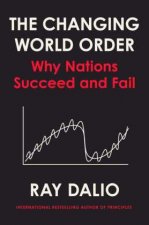
Principles for Dealing with the Changing World Order
92.71 zł -15 % -

Team Topologies
92.71 zł -23 % -

Freakonomics
36.38 zł -14 % -

Misbehaving - The Making of Behavioral Economics
48.31 zł -5 % -

Indispensable Milton Friedman
118.17 zł -11 % -
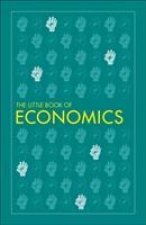
Little Book of Economics
47.10 zł -23 % -

Why Nations Fail
37.58 zł -26 % -

Pyramid Principle, The
188.74 zł -4 % -

Essential Mathematics for Economic Analysis
314.34 zł -7 % -
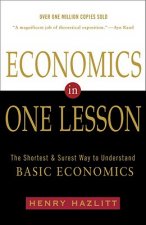
Economics In One Lesson
70.06 zł -23 % -

Predictably Irrational
67.95 zł -15 % -

Price of Inequality
48.31 zł -5 % -

(Mis)Behaviour of Markets
60.84 zł -23 % -

Debt, 10th Anniversary Edition
120.08 zł -23 % -

A-Level Economics: Year 1 & 2 Complete Revision & Practice (with Online Edition)
119.37 zł -10 % -

The Invisible Hand
33.47 zł -23 % -

Liar's Poker
60.64 zł -

Rational Optimist
52.42 zł -22 % -

Irrational Exuberance
96.32 zł -6 % -
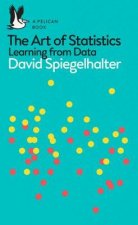
Art of Statistics
52.11 zł -15 % -

Scrum - A Pocket Guide - 3rd edition
96.02 zł -5 % -

Hypomanic Edge
101.33 zł -
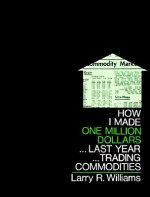
How I Made One Million Dollars Last Year Trading Commodities
204.68 zł -4 % -
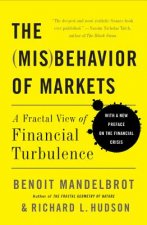
Misbehavior of Markets
116.67 zł -

Econometric Analysis, Global Edition
390.32 zł -

Cartoon Introduction to Economics
88.60 zł -11 % -

Economics: The User's Guide
60.94 zł -15 % -
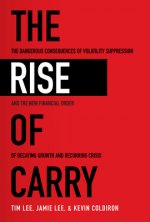
Rise of Carry: The Dangerous Consequences of Volatility Suppression and the New Financial Order of Decaying Growth and Recurring Crisis
115.67 zł -23 % -

Myth of Capitalism - Monopolies and the Death of Competition
118.17 zł -11 % -

How Rich Countries Got Rich and Why Poor Countries Stay Poor
70.06 zł -23 % -

Business Etiquette in Brief
63.04 zł -4 % -

Intermediate Microeconomics and Its Application
446.86 zł -

Discovery, Capitalism & Distributive Justice
94.31 zł -

Economic Point of View
123.28 zł -
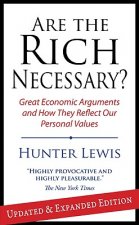
Are the Rich Necessary?
61.34 zł -6 % -

Driving Digital Transformation
92.71 zł -23 % -

Start-Up Nation
43.19 zł -15 % -

Economic Facts and Fallacies
85.19 zł -5 % -

Decision Book
84.59 zł -6 % -
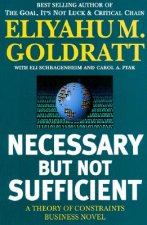
Necessary but Not Sufficient
85.09 zł -4 % -

Freakonomics
28.86 zł -23 % -

Economics Book
90.91 zł -14 % -

Leading at a Higher Level
129.60 zł -5 % -

Principles of Economics
76.17 zł -1 % -

Macroeconomics For Dummies
107.15 zł -11 % -

45 Second Presentation That Will Change Your Life
49.41 zł -4 % -

Economics of the Public Sector
310.93 zł -5 % -

Factfulness
51.91 zł -10 % -

Currency Wars
69.86 zł -14 %
zadowolonych klientów
Od roku 2008 obsłużyliśmy wielu miłośników książek, ale dla nas każdy był tym wyjątkowym.
Copyright! ©2008-24 libristo.pl Wszelkie prawa zastrzeżonePrywatnieCookies


 21 milionów książek
21 milionów książek Dostawa 10.99 zł
Dostawa 10.99 zł (32) 444 93 66 (8-15.30h)
(32) 444 93 66 (8-15.30h)